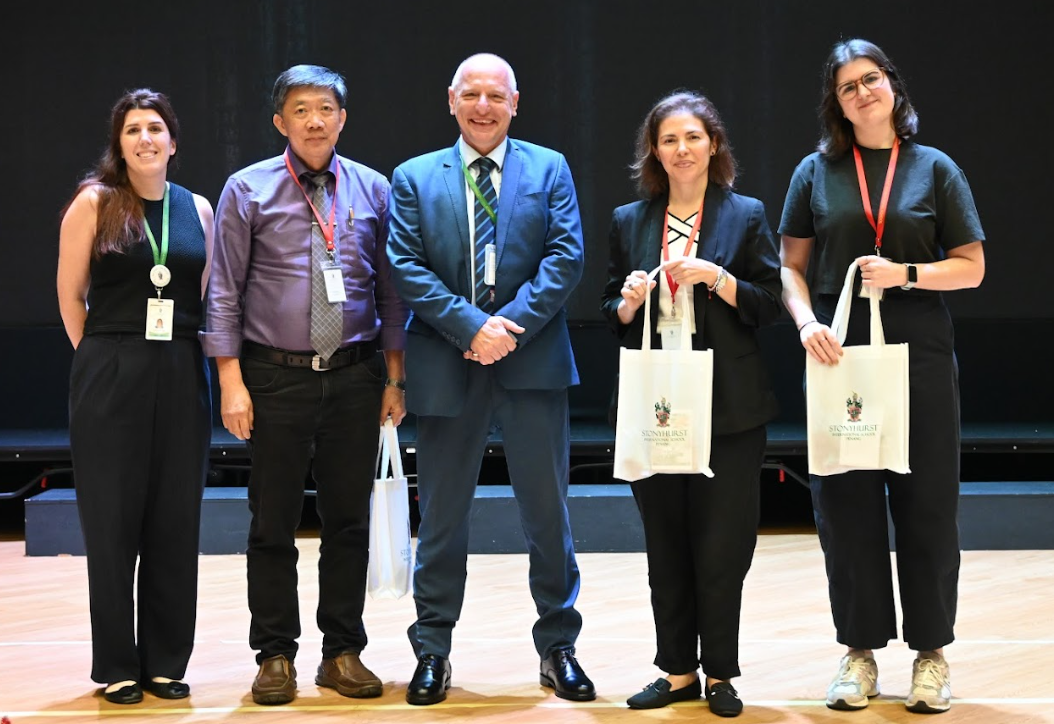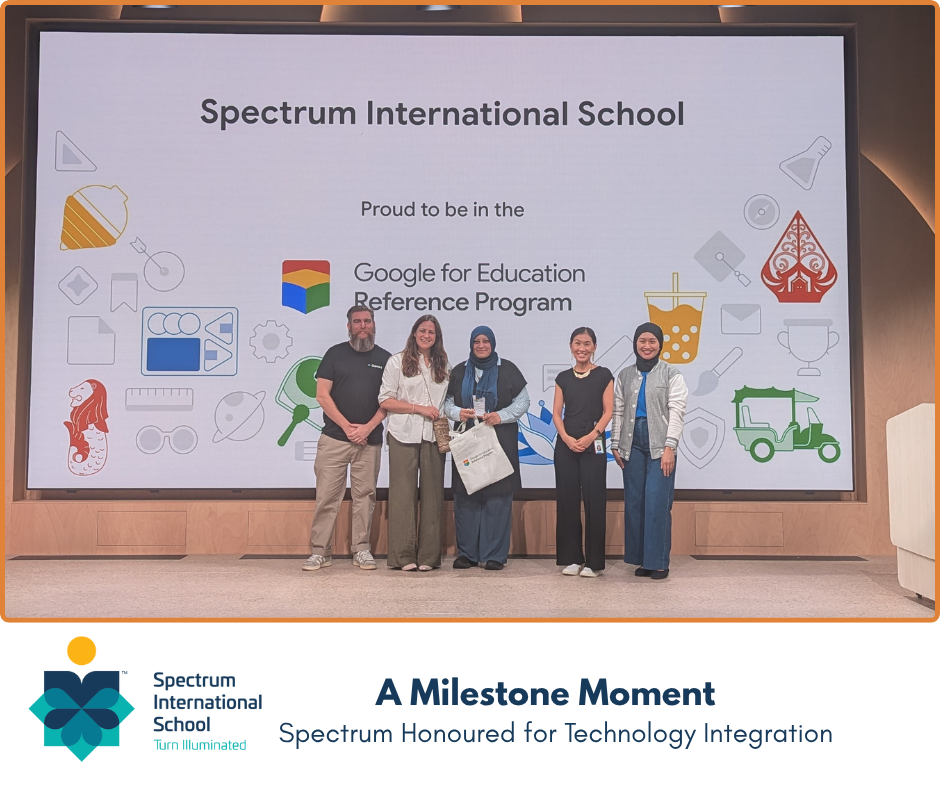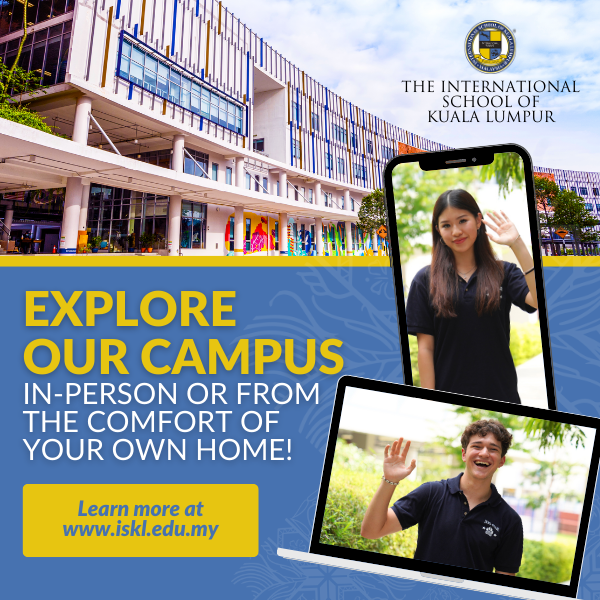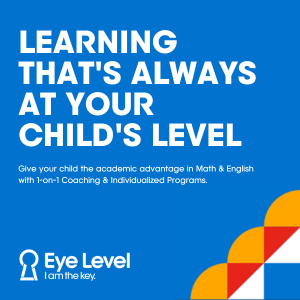This article provides an overview of the types of support offered by international schools for students with special educational needs.

One of the biggest responsibilities of a parent is to find the most suitable education pathway for their child. Parents who are considering private and international education in Malaysia have plenty of options with over 80 schools located in the Klang Valley alone. Settling for a suitable school is a time-consuming process involving research, school visits and financial planning.
What about parents who have children with special educational needs? The task of finding a school that caters to these needs can indeed be challenging. Fortunately, a number of international schools in Malaysia today prioritise inclusion and provide learning support for students with such needs.
What are Special Educational Needs (SEN)?
Children with various forms of disorders and disabilities face learning difficulties in the classroom. Some of the common learning disorders among children are dyslexia, dyscalculia and dyspraxia. Children who have medical disorders such as attention deficit hyperactivity disorder (ADHD) and autism will face learning disruptions as well.
Learning disorders and disabilities may be due to abnormality, injury and impairments from a disease. Children with SEN will encounter obstacles when it comes to schoolwork and personal organisation. They may also have trouble maintaining friendships and relationships with adults.
What is Learning Support?
Learning support comprises a variety of instructional methods, educational services and school resources to help students improve their learning, match the standards of their peers and, ultimately, meet the school’s learning standards. A number of international schools have departments dedicated to providing learning support for students with SEN.
What are International Schools Doing Now?
Classroom support
In international schools we find enrichment coordinators, specialists and learning support teachers all collaborating to assist students in the areas of numeracy, literacy and student development. Depending on the student’s needs, lessons can take place within a classroom environment or outside it. Special training and development sessions are conducted to come up with improved teaching methods and strategies to aid students with SEN. At Australian International School Malaysia (AISM), for instance, students are guided by Learning Support Assistants, both at individual and small group level, where appropriate and necessary. The school also has a Learning Enrichment Department where students are referred to by teachers for observation and assessment.
One-on-one learning
Students requiring more attention are taught on a one-on-one basis. Some schools conduct special sessions once or twice a week to help students complete schoolwork and additional tasks. These sessions are especially useful for students with dyslexia and dyscalculia. In the British School of Kuala Lumpur (BSKL), there is a small department offering up to two hours of additional support to SEN students.
Parent involvement
Some international schools, such as the Alice Smith School, are open to partnering with parents to generate new ideas and suggestions on how to accelerate their children’s learning. Discussions are usually carried out during parent-teacher conferences.
Specialised programmes
Selected international schools have specialised programmes for students with SEN. For example, Marlborough College Malaysia (MCM) provides additional lessons to students with dyslexia, dyscalculia, dyspraxia and elements of ADHD who face difficulties accessing the curriculum. At Alice Smith School, support programmes are held for students who face difficulty in literacy and mathematics.
The highly structured intervention programmes at BSKL are based on assessments conducted on SEN students. According to Deborah Wafer, Head of Inclusion at BSKL, “Specialised assessments can be completed including screening for dyslexia, visual stress, cognitive skills, processing, working memory and dyscalculia. But, more importantly, assessments are used to identify barriers to learning.” Assessments at BSKL not only involve the student, but parents and teachers as well.
Emphasis on life skills
At AISM, the teaching staff collaborate to modify, adapt and extend the core and co-curricular programmes to provide personalised opportunities for all students to maximise their potential and Explore, Extend & Excel in all areas. In addition, MCM puts in place learning strategies to develop confidence and organisation skills in SEN students. These efforts enable students to achieve their goals and to acquire greater independence.
Counselling
A number of schools also have an in-house counsellor who helps students with academic, emotional and social problems. School counsellors pay special attention to personal development and improvement of social skills. For example, BSKL offers counselling services to families and has the option of referring their cases to other agencies. At MCM speech & language assessment and therapy are available to students.
What Can Parents Do at Home?
There are a few things parents with SEN children can do to create a positive and loving environment at home. Firstly, they can come up with simple tasks for their children to complete which will lead to a sense of achievement and pride. For these tasks, parents should always give clear instructions that are easily understandable. Next, parents can also give descriptive praise to their children when they do well to boost self-esteem. It is also important for parents to have meaningful conversations with their children and provide a safe avenue for them to express their feelings. Parents need to realise that they cannot rely solely on the school to teach their children. They have to do their part by inculcating in their children soft skills which build self-confidence.
The type and amount of learning support offered to students with SEN differs from school to school. Therefore, it is important for parents to speak to the school openly about their child’s needs and to ask for detailed information on what the school provides for such students. Enquiries could also be made about wheelchair access to cater to students with physical disabilities.
Children with SEN must not be equated with slow learners or individuals who are less intelligent. They are often as smart as their peers; the only difference is that they need to learn in a different way. International schools recognise that all students have unique interests, abilities, intelligences and learning preferences. Therefore, a continuous effort from parents and teachers alike is needed to ensure children with SEN are educated to their fullest potential.













![[elc International School] NO SHORTCUTS: WHY THINKING STILL MATTERS](https://mint-edm.sgp1.digitaloceanspaces.com/production/XTvbqZxxQQxUHjyDcClxCortA5SxNs.png)




















